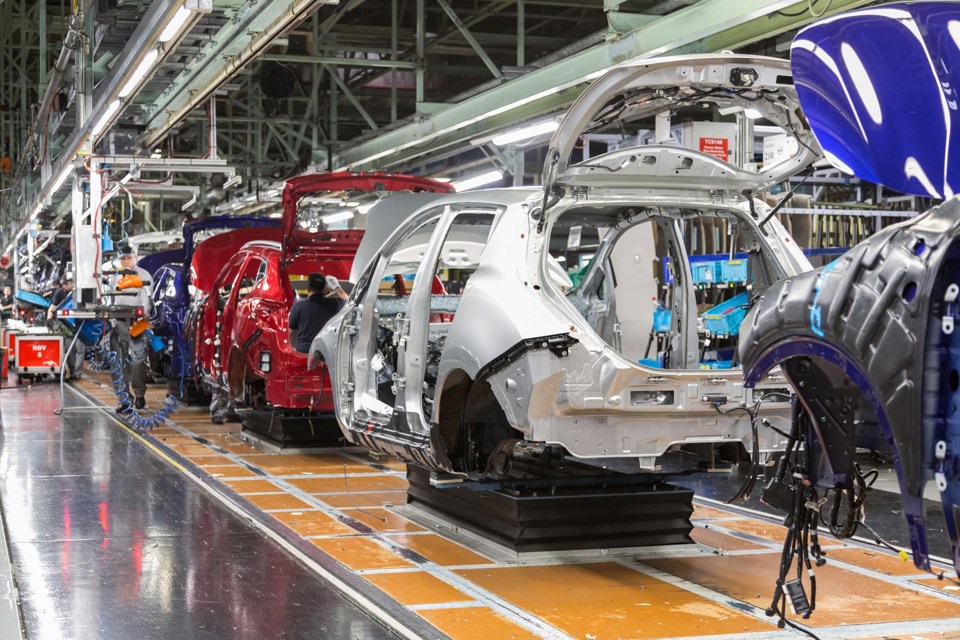The global semiconductor shortage is due to negatively impact vehicle manufacturer supply chains until at least Q3 2022, according to the Society of Motor Manufacturers and Traders (SMMT).
The SMMT has surveyed its members to review the impact of the global shortage of semiconductors on the UK automotive sector and its supply chain.
The results of the survey are against a backdrop of continued falls in UK car production, with a 41.5% fall in September.
The drop marks the third consecutive month of decline, with 67,169 cars manufactured. The SMMT said this is the worst performance for September since 1982.
Output continues to be hampered by the production stoppages caused by the ongoing global shortage of semiconductors as well as the loss of production capacity arising from the closure of Honda’s Swindon plant in July.
More than eight in 10 (83%) firms have been negatively impacted by the semiconductor shortage, primarily due to reduced orders, cost increases, logistical delays and disruption.
The SMMT said the supply chain has spent more than £2.4 billion to date managing additional costs which are unlikely to be recovered, with most (56%) not expecting supply constraints to improve until the third quarter of 2022 and more than a third (38%) having to reduce operating hours to cope with the challenge.
Around one in 10 firms have made redundancies and/or restructured their businesses as a direct result of the lack of semiconductors, while some six in 10 (65%) SMEs sought an extension to the Coronavirus Job Retention Schemes, highlighting the fact that, although the pandemic may be receding, its impact on the sector is still pronounced.
Despite the ongoing challenges, production of the latest battery electric (BEV), plug-in hybrid (PHEV) and hybrid (HEV) cars continues to break records, now representing almost a third (32.3%) of all cars made, equivalent to 21,679 units.
It means UK car factories have turned out 158,710 alternatively fuelled cars since January.
There was also some positivity from commercial vehicle production, with a modest increase of 1.8% in September year-on-year to 7,799 units. The SMMT said this was driven by the fulfilment of several large fleet orders.
A worrying trend
Mike Hawes, SMMT chief executive, said: “The substantial decline in UK car output in September continues the worrying trend we have seen over the past three months.
"The industry is continuing to battle the effects of the pandemic with the shortage of semiconductors stalling production.
"While there was welcome news in the Budget to support the transition to zero emission vehicle production, battery manufacturing and supply chains, it missed the opportunity to offer meaningful short-term support given Covid-related supply constraints and rising energy bills.
"This is disappointing given the sector’s importance and its ability to create well-paid jobs across the regions and the revenues it generates, notably from exports.”
Both production for domestic and export markets fell significantly during September, down -47.4% and -39.6%, respectively with just 52,872 cars shipped overseas.
The decrease in exports was caused by a decline of exactly a third to the EU as well as falls in exports to Turkey, Australia and the USA which dropped -97.4%, -71.4% and -60.2% respectively.
Production year-to-date remains marginally up, by 3.8%, with 656,776 cars rolling off factory lines, which has largely been driven by exports with 82.7% of production heading for markets abroad.
However, the SMMT said this does not paint the full picture, with the year-to-date total down -33.5% over the 2019 performance and -44.1% - equivalent to 517,438 fewer units - less when compared to the five-year pre-pandemic average.

















Login to comment
Comments
No comments have been made yet.